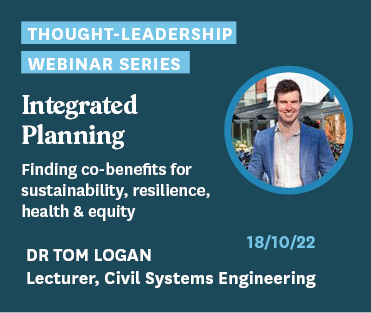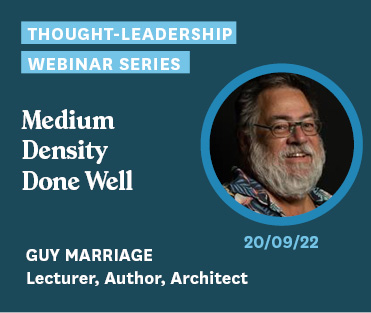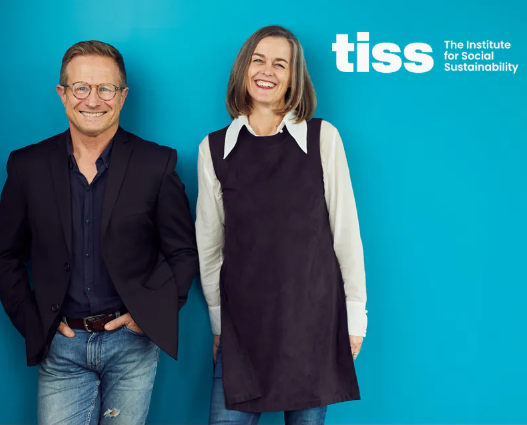Kia ora koutou and welcome to our latest pānui | eNews, featuring:
- Regional Transport Committee & WRLC Workshop outcomes
- Regenerative Design, by Haley Hooper and Anna Michels, WSP
- National Policy Statement for Urban Development – Update
- New Interactive Housing Data Dashboard
- Thought-leadership webinars to watch out for
- Future Development Strategy project up and running
- Link to September Leadership Committee papers
Improving housing and transport alignment – regional transport committee and WRLC joint workshop outcomes
To adequately meet the future needs of our region, the objectives of planned urban development and transport must be aligned. Without access to decent public transport, a new housing development does not meet minimum criteria of good urban planning. Integrating housing and transport design, is essential to meet mobility needs and emissions reduction goals, while creating attractive, environmentally and economically vibrant places for people to live.
To ensure they’re done well and work together, a joint workshop was held on 22 August between the Wellington Regional Leadership Committee and the Regional Transport Committee. The two committees discussed work programmes, current and ideal state of housing and transport, and steps to take to work together for better regional outcomes.
It was agreed that BAU simply won’t work if we want to achieve our urban development, emissions reduction and transport objectives and targets. Decision-makers need to think and act more long-term. Questions around barriers and opportunities were workshopped, with groups discussing ‘ideal scenarios for the region’s future’.
Next steps are for WRLC and RTC to agree a list of key projects and sequencing to best support integrated land use and transport in the region.
Regenerative Design – Much less bad, much more good
– Co-written by WSP Urban Design Leaders Anna Michels, Haley Hooper, Alan Whiteley and key members of the WSP team (WSP; Research, Urban Design, Planning, Architecture + Landscape Architecture)

In this second installment of a two-part series, MC Cagney Transport Planner Malcolm McCracken, explains the enablers to density done well.
“These are just future slums” is a common response to articles these days regarding medium or high-density housing. While these comments are far from the truth, they often stem from genuine concerns from residents about the change that could occur in their neighborhood.
The way we enable density and the actions we take to support the increased population, dictate the outcomes for our community. There is growing consensus that density is critical to the future of our cities. A recent Kantar public opinion survey found 49% of Aucklanders were positive about the new housing rules, with 32% being negative and the remaining neutral (16%) or unsure (4%). The debate is shifting to how to do density well.
There are two key components to density done well. The first is creating a positive built form, allowing higher density while protecting privacy, daylight and open space. The second is the supporting actions which ensure our medium and high-density neighbourhoods are vibrant and livable.
Read the full article here
Update on the implementation of NPS-UD
Under the National Policy Statement for Urban Development (NPSUD), the government is introducing new rules for all high-growth areas to accommodate more residents, businesses and community services in urban areas.
Of the NPSUD changes, those most applicable to our work are:
- enabling building heights of at least six storeys within at least a walkable catchment* of existing and planned rapid transit stops
- Medium Density Residential Standards (MDRS) or 3 by 3 – allowing for 3 dwellings of three storeys.
* a walkable catchment is the area that an average person would likely choose to walk to get to their destination.
Tier 1 Councils (Upper Hutt City Council, Hutt City Council, Wellington City Council, Porirua City Council and Kāpiti Coast District Council) have all now prepared District Plan changes to enable the NPSUD changes as required and Greater Wellington Regional Council (Greater Wellington) has prepared an updated Regional Policy Statement (RPS), also to enable the NPSUD changes.
Ministry of Housing and Urban Development’s new interactive housing data dashboard
The Ministry for Housing and Urban Development has created a Housing Data Dashboard, displaying data on key parts of the Government’s housing programme. The dashboard is a single place to track progress of key parts of the Government’s housing programme.
It’s updated monthly and includes information on public and transitional housing, other housing built by the Government, the housing register and other housing support provided. It shows what has been delivered by the end of the month.
You select the timeframe for which you want to view housing data.
View the housing dashboard here.
WRLC Thought Leadership Webinars – stimulating bigger thinking & conversations on shaping our future
WRLC exists to support better coordination in regional leadership to deliver positive outcomes for our communities. What does this look like in practice? And how do we get there? In this complex environment, collectively transitioning to a joined-up, cohesive voice, is a journey. While we all want ‘better community outcomes’, how is this achieved in practice? As Einstein is famous for saying, “the definition of insanity is trying to solve a problem with the same thinking that created it.”
These webinars create a space to leverage expert insights, to enable shared learning and constructive conversations with those working to shape the future of our region.
Guy Marriage: Medium Density Done Well
For our inaugural thought-leadership webinar, held on 20th September 2022, we heard from Guy Marriage, author of Medium, and senior lecturer at Wellington School of Architecture, on the what, why and how of Medium density done well.

Dr Tom Logan: Integrated planning
Finding co-benefits for sustainability, resilience, health, and equity.
Details: 10:30am, Tuesday 18 October
Today’s wicked challenges (chronic disease, social and environmental injustices, and climatic change) are the most complex we have ever faced. Yet many processes and decision-making approaches remain siloed. In this talk, Dr Logan will discuss how modern planning requires an adaptive approach, that prioritises people, and will touch on some of the ongoing progress to support informed and integrated decisions.
To RSVP email: hello@wrlc.org.nz
Future Development Strategy – Update
With the Future Development Strategy (FDS) project lead onboard since mid-August, this project is gaining momentum. The FDS sets out a long-term plan to ensure a ‘well-functioning’ urban environment, showing where growth will be, in what form, and what infrastructure is needed to support that growth. Workshops are now being planned for early 2023, as part of the FDS consultation process.
You can follow progress with the FDS project on this page.
INDUSTRY EVENTS
Auckland Climate Change Update
Theme: Ancestor, Me.
I AM A GOOD ANCESTOR. BELIEVING IN OUR FUTURE.
Spring into spring with some inspiration from the second Auckand Climate Festival! Taking place from 1 – 31 October, you don’t have to be in Auckland to attend, with many virtual / hybrid options.
Peruse the programme here.
How can we be a catalyst for socially sustainable, systemic change in the areas we care about?
This interactive session discusses the ‘why and the how’ of building sustainable, principled pathways for improving not only the systems that we care about, but our own professional and personal lives as well.
When: online, 4:30-6pm, 10 October
WRLC September 2022 Meeting Papers
You can now view the WRLC September papers here




